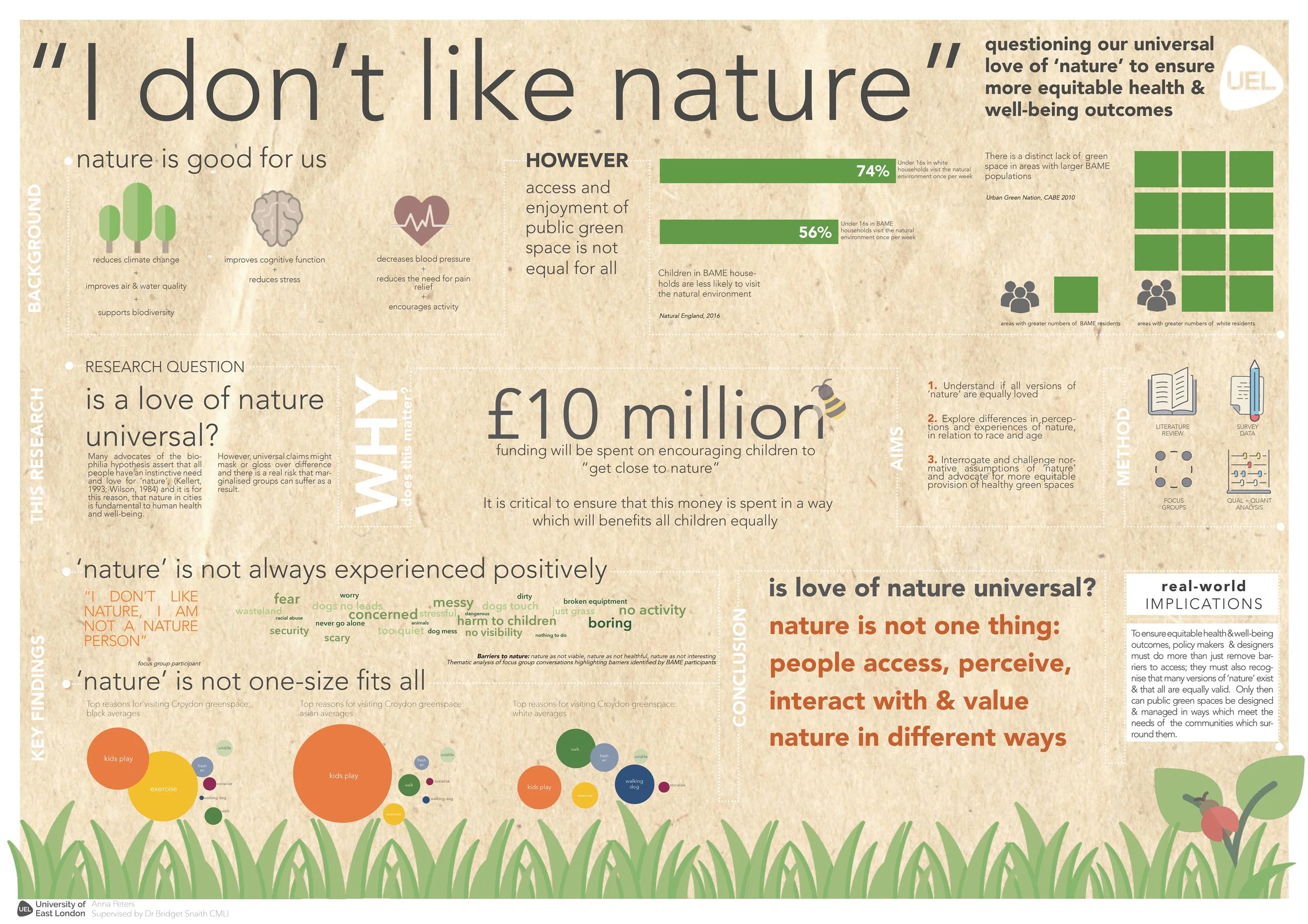(RE)DEFINING NATURE: designing urban spaces
for more equitable health & wellbeing outcomes
UEL funded research project with Dr Bridget Snaith
presented at Biophilic Cities Conference 2018 & ‘Posters in Parliament’ Westminster 2019
Is a love of nature really universal?
Advocates of Biophilia assert that everybody has an instinctive love for nature, and many studies highlight the benefits that green spaces have on health and wellbeing. But, is a love of nature really universal and what are the implications if it is not?
Nature is a big term. Our research shows that there are differences along lines of religion, race, ethnicity, age, disability and illness in experiences of nature. The people we spoke to didn’t all agree on what nature is and, whilst most held positive associations, for some nature was a negative term. Therefore, ‘nature’ is not one thing: people access, perceive, interact with and value nature in different ways.
These findings call into question the Biophilic assumption. If we are to provide all citizens with access to outdoor spaces (and the associated health & wellbeing benefits of being outside) then we must acknowledge this difference. Design and management of public spaces should reflect a variety of definitions, experiences and preferences of so-called ‘nature’.
is this nature?
is this nature?
is this nature?




